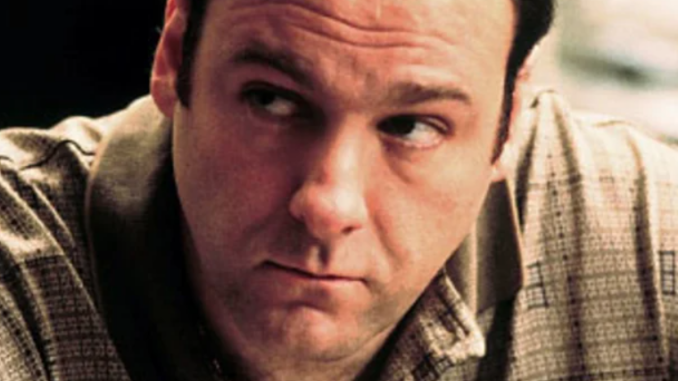
Introduction: The Enduring Impact of The Sopranos
When The Sopranos first premiered on HBO in 1999, it revolutionized the television landscape, captivating audiences with its gritty portrayal of mob life and the complex psyche of its protagonist, Tony Soprano, played masterfully by James Gandolfini. This groundbreaking series not only changed the way stories were told on TV but also paved the way for the Golden Age of Television. In a recent documentary titled The Sopranos: A Cultural Phenomenon, fans of the series are invited to delve deeper into the legacy of this iconic show, exploring its cultural significance, storytelling techniques, and the unforgettable characters that have left an indelible mark on popular culture.
The Birth of a Cultural Icon
The documentary begins by examining the origins of The Sopranos. Created by David Chase, the show was groundbreaking in its exploration of themes such as mental health, family dynamics, and the moral complexities of crime. Tony Soprano’s struggles with anxiety and depression resonated with viewers, offering a glimpse into the mind of a man caught between his responsibilities as a mob boss and his desire to be a loving family man. This duality is a recurring theme throughout the documentary, as experts and fans alike discuss how it humanized a character often seen as a villain.
Unpacking the Characters
One of the documentary’s highlights is its in-depth character analysis. Viewers are treated to interviews with cast members, including Lorraine Bracco (Dr. Jennifer Melfi) and Edie Falco (Carmela Soprano), who reflect on their experiences working on the show. They provide unique insights into their characters’ motivations, struggles, and relationships with one another. The exploration of these complex characters showcases the show’s commitment to authenticity and emotional depth, allowing audiences to connect with them on a personal level.
The documentary also delves into the supporting characters, such as Christopher Moltisanti and Paulie Walnuts, highlighting how they contributed to the series’ overall narrative. By exploring the dynamics within the Soprano crime family, the film illustrates the show’s multifaceted portrayal of loyalty, betrayal, and the consequences of a life steeped in crime. This character-centric approach resonates with audiences, reminding them that while The Sopranos may be a crime drama, it is ultimately a story about human relationships.
The Art of Storytelling
The documentary emphasizes the innovative storytelling techniques employed in The Sopranos. From its nonlinear narrative structure to its cinematic visuals, the show set a new standard for television production. The incorporation of dream sequences and surreal imagery, particularly in Tony’s psyche, allows viewers to explore the deeper meanings behind his actions and decisions. The film illustrates how these artistic choices not only enhanced the storytelling but also invited viewers to engage with the narrative on a more profound level.
Moreover, the documentary explores the show’s use of music, showcasing how its eclectic soundtrack played a pivotal role in shaping the mood and tone of each episode. From the iconic opening theme, “Woke Up This Morning” by Alabama 3, to the carefully curated songs that accompanied pivotal moments, music became an integral part of the storytelling process. This aspect of The Sopranos is a testament to its creators’ attention to detail and their commitment to creating a truly immersive viewing experience.
The Influence on Television and Pop Culture
As the documentary progresses, it highlights the profound impact The Sopranos has had on the television industry and pop culture as a whole. It explores how the show inspired a new wave of anti-hero narratives, paving the way for series like Breaking Bad, Mad Men, and The Wire. These shows, while distinct in their storytelling, owe much of their success to the blueprint established by The Sopranos.
The documentary also addresses the show’s cultural significance, examining its exploration of Italian-American identity, family dynamics, and the complexities of the American Dream. It discusses how The Sopranos challenged stereotypes and presented a more nuanced portrayal of Italian-Americans, prompting conversations about representation in media.
Conclusion: The Legacy Lives On
In conclusion, The Sopranos: A Cultural Phenomenon serves as a poignant reminder of the lasting impact of this iconic series. Through its exploration of character, storytelling, and cultural significance, the documentary provides a comprehensive look at what made The Sopranos a revolutionary force in television history. As fans revisit the show, they are reminded that it is more than just a crime drama; it is a reflection of the human experience, filled with complexities, contradictions, and a deep exploration of the psyche.
Whether you are a longtime fan or a newcomer to the world of Tony Soprano, this documentary is a must-watch. It not only celebrates the legacy of The Sopranos but also invites viewers to reflect on its themes and the ways in which it continues to resonate in today’s society. The series may have concluded over a decade ago, but its influence endures, proving that great storytelling transcends time and continues to shape our understanding of the world around us.